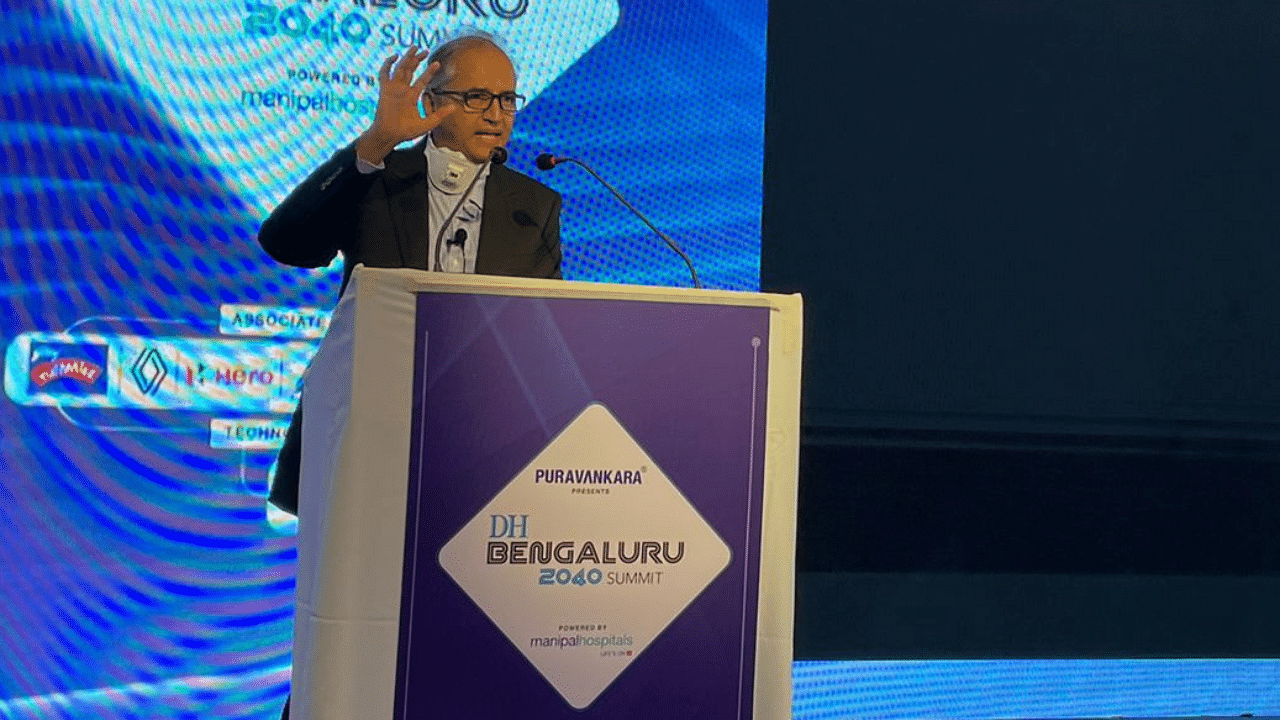
"Healthcare in the future will be delivered to the global population on a mobile phone on the move and not in hospitals or at the desk," according to Dr Devi Prasad Shetty, founder and executive director of Narayana Health, who's known as the 'Henry Ford of cardiac surgery. He was delivering the keynote address, 'Digital Disruption of Healthcare', at the DH Bengaluru 2040 Summit on Friday.
"History will be written as Before Covid (BC) and After Covid (AC). These are two distinct periods," Shetty said. "The Covid-19 pandemic has taught us that those who are not involved in patient care directly, who do not need to touch the patient, need not be in the hospital. I believe the healthcare of the entire population of this world will be delivered through one device - the mobile phone. It doesn't matter if you are rich or poor, this is the device through which healthcare will be taken care of."
He went on to explain that he is personally overseeing 20 patients of the 500 in his hospital, be it in the ICU or in the ward and they are tracked clinically on his phone. "I can do the ICU rounds at 11 pm before going to bed or at half past 4 am when I wake up because I can check their chest X-rays, blood tests and cardiac monitor readings right from my phone," he said, showing a patient's reports on his phone. "You can communicate with the patient right from the bedroom. With a risk scorecard, I can know the possibility of him or her developing a cardiac arrest. As soon as the blood chemistry is out, at least 20 people on my team would have seen the results."
Shetty explained that Covid-19 had disrupted the healthcare industry around the world. In the near future, people consulting with doctors first on the phone for a diagnosis will become the new normal, he said.
"The doctor will have the entire medical history of the patient on their phone and do instant diagnosis. They will go to the hospital only if necessary and everything else will be online," said Shetty.
With advanced technology, doctors staying in their homes will be able to interact, treat and offer diagnoses to patients with serious issues like kidney problems, heart failure and other critical health conditions, Shetty noted. This will eliminate errors and make it safer for patients.
The doctor said that healthcare was the largest industry in the world worth $8.2 trillion and yet, less than 20% of the world had access to decent healthcare. "India will be the country where access to healthcare will be disassociated with the affluent," he said. "Electronic medical records (EMRs) of the patient on the phone will be the norm. A QR code scan will give the doctor access to everything. Today, in the US, millions of dollars are being spent on checking EMRs at the desktop, which the doctor sees only a few times. Whereas he checks his mobile phone a hundred times."
"Today, we have so many young men and women working in hospitals just fetching patient samples from one room to another. This is redundant. In the future, robots can do this," he said.
Shetty also spoke about a trust deficit between patients and insurance companies. "The concept of health insurance is complicated," he said. "All kinds of tall promises are made by insurance providers that for a small premium, lakhs worth of coverage will be given even for pre-existing conditions, but they don't turn out to be true."
And making a point about the almost universal digital takeover, Shetty said, "Uber, which owns no cars, Facebook, which doesn't make any content and Alibaba, which doesn't own any inventory, have become top companies in their sector. Similarly, the healthcare system will be driven by software rather than physical infrastructure."
Check out DH's latest videos
